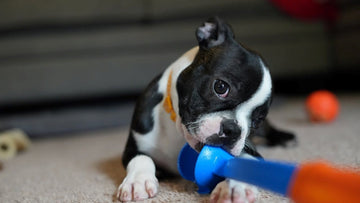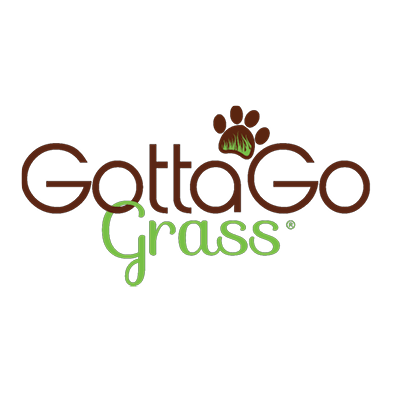
Walk down any pet store aisle—or scroll through an online marketplace—and you’ll quickly realize that dog toys are far from being one-size-fits-all. What excites one dog might bore another. Some pups love to chase and fetch, while others prefer chewing, cuddling, or solving puzzles. With so many options out there, it can be overwhelming to figure out which toys are best for your furry friend. The secret? Choosing dog toys that match their personality, playstyle, and specific needs.
The choices are only going to grow. The global pet toys market was valued at $8.3 billion in 2022 and is projected to reach $18.4 billion by 2032. A key driver of this growth is the rising trend of humanizing pets—treating them as family members. As more pet owners seek to improve their dogs’ quality of life, spending on premium toys, food, and services continues to climb. That means endless options for pet parents, but also more confusion about what’s truly best. This guide will help you cut through the noise and find toys that fit your dog’s unique personality.
Why Personality Matters in Choosing Dog Toys
Playtime is more than just fun for dogs—it’s essential for their overall health and happiness. Regular play helps dogs burn off excess energy, reduce stress, and strengthen the bond with their owners. It also provides mental stimulation, which is just as important as physical exercise. A dog that gets plenty of play is less likely to engage in unwanted behaviors like chewing furniture or barking excessively. Play can even be used as a training tool, reinforcing positive behaviors while keeping your pup motivated and engaged.
Just like humans, dogs have unique personalities that influence how they interact with the world—and with their toys. A high-energy retriever is less likely to enjoy the same toy as a mellow senior spaniel. Choosing the wrong type of toy can lead to frustration, boredom, or even safety risks if your dog destroys it too quickly. On the other hand, selecting the right toy keeps your dog entertained, active, and content. The right fit encourages mental stimulation, provides exercise, strengthens the bond between dog and owner, and helps ease anxiety.

Common Dog Personality Types and the Toys We Recommend
Dog toys can be grouped into categories like training toys, treat-dispensing toys, interactive games, comfort toys, and self-amusement toys. With such a wide selection, the key is to match them to your dog’s personality type.
If your dog has high energy
Energetic dogs are always on the move. They love running, chasing, and engaging in constant activity, which means they need toys that can keep up with their playful spirit. Fetch toys like tennis balls, frisbees, tug ropes, and durable sticks are perfect for these pups because they encourage active play and provide the exercise they crave. When choosing fetch toys, look for ones that are lightweight, easy to throw, and durable enough to withstand rough play.
Best Toys for High-Energy Dogs: Fetch toys like tennis balls, frisbees, tug ropes, and sticks.
If your dog is a power chewer
Power chewers are the dogs with strong jaws and an insatiable need to chew, often destroying standard toys within minutes. For these dogs, durable toys are a must. Heavy-duty rubber chews, nylon bones, and specially designed dental chews are excellent options since they can endure strong biting while also satisfying your dog’s chewing instinct. Always choose toys made from non-toxic, long-lasting materials. Avoid thin rubber or fabric toys, as they can break apart easily and pose choking risks or cause digestive issues if swallowed.
Best Toys for Power Chewers: Heavy-duty rubber chews or nylon bones.
If your dog is a problem-solver
Problem-solving pups are intelligent, curious, and thrive on challenges. They get bored quickly, which can lead to unwanted behaviors if not properly stimulated. Puzzle feeders, treat-dispensing balls, and interactive toys are perfect for keeping their minds busy and engaged. A great example is the treat tumbler dog toy ball from Gotta Go Grass®, which not only stimulates their brain but also slowly dispenses treats during play. Its grooves massage gums, promoting oral health, while being versatile enough for both gentle nibblers and more aggressive chewers.
Best Toys for Problem-Solvers: Puzzle feeders, treat-dispensing balls, or interactive toys that require problem-solving.
If your dog is cuddly
These dogs love snuggles, companionship, and soft play over roughhousing. They often get anxious when left alone, so toys that provide comfort are essential. Plush toys, squeaky stuffed animals, and soft toys that can hold their owner’s scent are excellent choices to help them feel secure. This plush squeaky dog toy is a great fit, with its dual-texture design—soft plush for cuddling and a durable rope for light tug play. The rope also supports dental health by cleaning teeth and massaging gums. Opt for machine-washable plush toys to make cleaning easy.
Best Toys for Cuddly Dogs: Plush toys, squeaky stuffed animals, or soft toys that hold the owner’s scent for comfort.
If your dog is group-oriented
Social butterflies thrive on interaction, whether it’s with their human family or other dogs. They love group activities, making interactive toys a perfect match for their personalities. Tug toys, rope rings, and fetch toys designed for multiple players allow them to engage in cooperative play, which they enjoy most. When selecting toys for social dogs, be mindful of the size—choose options that are safe for all participants. This facilitates fun group play without the risk of choking hazards or unsafe mismatches
Best Toys for Social Butterflies: Tug toys, rope rings, multi-dog fetch toys designed for group fun.
If your dog is a senior or has low energy
Gentle players are often calm dogs, including seniors, who prefer slower-paced activities. They may also have dental or mobility issues, so choosing toys that suit their needs is especially important. Soft chew toys, slow feeders, and lightly squeaking toys work well because they are easy on sensitive mouths and encourage mild, enjoyable play. Look for toys made from softer materials or with gentle textures that won’t cause discomfort. Avoid overly hard toys, as these can damage aging teeth and make playtime unpleasant. With the right toys, gentle players can still stay engaged, active, and happy without straining themselves.
Best toys for seniors and low-energy dogs: Soft chew toys, slow feeders, or lightly squeaking toys that are easy on sensitive mouths.

Safety Checklist for Dog Toys
Regardless of your dog’s personality, safety should always be the priority when choosing toys. Keep these factors in mind:
Size matters: Avoid toys that are too small, which could become choking hazards, or too large, which may be difficult for your dog to enjoy.
Material safety: Avoid toys with toxic plastics, artificial dyes, or parts that can splinter. Opt for toys labeled non-toxic and designed specifically for dogs.
Durability: Match the toy’s toughness to your dog’s playstyle. Power chewers need heavy-duty rubber, while gentle players may prefer soft fabrics.
Supervision: Always supervise your dog with a new toy until you know it’s safe. Some toys are suitable for independent play, while others should only be used when you’re watching.
How to Test and Rotate Toys
Getting to know your dog helps narrow down toy options, but it’s also fun to experiment. Trying different toys can reveal surprising preferences. Some dogs may love puzzles they can conquer, while others may fall in love with a squeaky plush.
Introduce toys gradually to see what your dog enjoys most. Give them time to explore new textures, sounds, and shapes. If a toy doesn’t spark excitement, don’t toss it just yet—it may come back into favor later.
Rotating toys weekly is a great way to keep playtime fresh. Just like kids, dogs can get bored if the same toys are always available. By rotating, you create the feeling of “new” toys without constantly buying more.
Signs your dog might need a new type of toy include:
-
Ignoring current toys.
-
Chewing furniture or household items.
-
Restlessness or destructive behavior despite having access to toys.
Final Thoughts
Choosing dog toys based on personality helps keep your pup happy, healthy, and engaged. Rather than picking toys at random, think about how your dog plays, what excites them, and what comforts them. A thoughtful choice helps prevent boredom, supports training, and even strengthens the bond between you and your furry companion. Here’s a quick cheat sheet to remember:
Cheat Sheet: Choosing the Right Toys for Your Dog |
|
|
Energetic Explorer |
Fetch toys and frisbees |
|
Power Chewer |
Durable rubber or nylon chews |
|
Problem-Solver |
Puzzle feeders and treat-dispensing toys |
|
Cuddly |
Plush and squeaky comfort toys |
|
Group-Oriented |
Tug ropes and multi-dog fetch toys |
|
Senior or Low-Energy |
Soft chews and slow feeders |
With so many options in the booming pet toy market, knowing your dog’s personality is the simplest way to shop smarter. The right toy will not just entertain your dog—it will improve their quality of life, making every wag, tug, and cuddle even more rewarding.
Explore Gotta Go Grass® for dog grass pads, toys, and other pet care essentials designed to keep tails wagging and pets happy every day.




